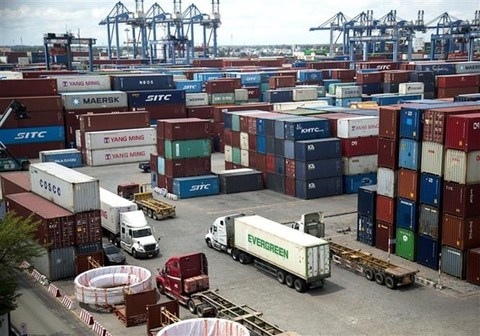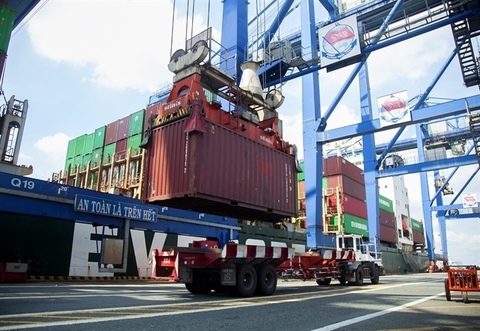Chile now a key trade partner in Latin America
Chile now a key trade partner in Latin America
With a continuous rise in bilateral trade in recent years, Chile has become the fourth largest trade partner of Việt Nam in the Latin American region.

Việt Nam-Chile trade reached $2.15 billion in 2022. — VNA/VNS Photo |
According to the Ministry of Industry and Trade (MoIT), Việt Nam-Chile trade has expanded impressively over recent years, reaching US$2.15 billion in 2022, a year-on-year rise of 9 per cent, with Việt Nam’s exports being $1.72 billion.
In 2011, the Việt Nam-Chile Free Trade Agreement (VCFTA) was signed, going into effect on January 1, 2014, greatly contributing to promoting trade between the two countries.
Under the deal, Chile abolished 99.62 per cent of the total tax lines for Vietnamese exports for 10 years, while Việt Nam also erased 87.8 per cent of tax lines for Chile for 15 years.
Due to the global crisis, two-way trade growth is slowing down. In the first five months of this year, the figure dropped to $696.7 million, down 25.1 per cent year on year, including Việt Nam’s exports of $501 million.
However, Việt Nam is still the largest trade partner of Chile among the ASEAN member countries, according to the MoIT.
Việt Nam is also a gateway for Chilean goods to enter the ASEAN market, while Chile is expected to help Vietnamese products penetrate the North American market.
At the beginning of this year, Chile approved the Comprehensive and Progressive Agreement for Trans-Pacific Partnership (CPTPP), which is expected to bring about a new breakthrough growth in the Việt Nam-Chile trade ties.
The MoIT has proposed that the two sides roll out measures to boost two-way trade by making full use of advantages from the CPTPP and the VCFTA, diversifying imports and exports and creating favourable conditions for the market opening process in each country.
It also suggested that the two countries strengthen cooperation in fundamental industries such as materials production, metallurgy, mechanics, processing-manufacturing and electronics, while negotiating and signing new deals in trade promotion, and tax and customs, thus creating a legal foundation for cooperation activities.
At the same time, the two sides should strengthen the provision of market information to each other, foster collaboration in e-commerce, and strengthen IT application and digital transformation in trade promotion activities to increase connectivity among the two business communities, the ministry suggested.
























